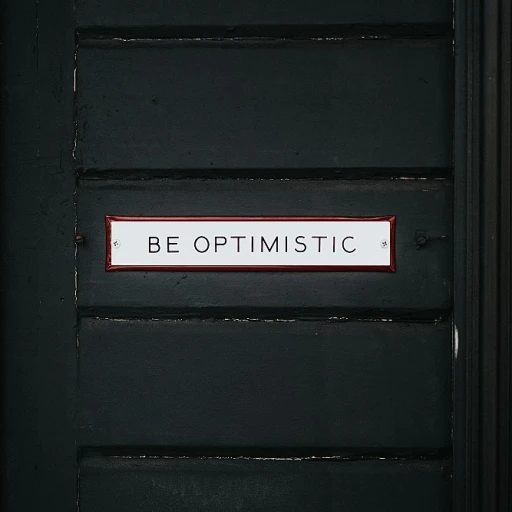
Understanding the Role of a Mentor
The Positive Influence of a Mentor
In the vast and ever-evolving world of professional growth, the role of a mentor stands out as a beacon of guidance and support. A mentor is someone who invests their time and effort into shaping the careers and lives of their mentees, providing them with invaluable advice and mentorship. The relationship between a mentor and a mentee can be transformative, setting the foundation for professional and personal growth.
Mentors excel in various capacities, offering personalized support and insights drawn from their own experiences. They help to identify strengths, address weaknesses, and provide specific strategies tailored to the mentee's individual needs. Through open communication and the sharing of knowledge, a mentor can play a pivotal role in directing the mentee toward success and self-improvement.
Expressing gratitude to such influential figures through a letter can profoundly impact both the giver and recipient. A heartfelt letter honors the time and dedication a mentor has provided, fostering an enduring and meaningful mentoring relationship. Crafting an appreciation message allows individuals to acknowledge the positive changes that a mentor's guidance has brought into their lives.
To better understand the comprehensive impact of having a mentor, you may explore how unlocking potential through mentorship has influenced many individuals on a larger scale. Visit unlocking potential through mentorship for further insights.
The Importance of Expressing Gratitude
Expressing Gratitude Through Mentorship
Expressing gratitude towards your mentor is an integral part of nurturing the mutually beneficial relationship between a mentor and a mentee. A heartfelt letter not only signifies appreciation but also acknowledges the positive impact your mentor's guidance has had on your professional and personal life.
Mentors selflessly dedicate their time and effort to nurture growth, offering insightful guidance and support. Recognizing their invaluable contributions can further solidify the mentoring relationship, encouraging continued support and professional growth. A small gesture of gratitude such as a simple message can simultaneously reflect your respect for their mentorship and the genuine appreciation for their influence.
Messages of gratitude are significant because they reassure mentors that their time and advice have made a meaningful difference. This not only enhances the mentor-mentee relationship but also contributes to greater satisfaction and fulfillment for the mentor, knowing their efforts are valued.
When crafting your gratitude message, specifics matter. Highlighting specific instances where their advice or guidance made a difference in your life can convey sincerity and depth. For instance, detailing how their professional insights helped you navigate a challenging situation can illustrate the impact of their mentorship. This specificity can transform your "dear mentor" note into a memorable message that resonates with your great mentor on a personal level.
Understanding the structure of professional roles can provide further insights on the importance of mentors in various phases of your career. Explore more about it by delving into the article on understanding the structure of professional roles.
Such gestures aren't just about thanking a mentor; they are about acknowledging the pivotal role they have played and continue to play in your development. These expressions of appreciation contribute to a vibrant culture of support and mutual respect, laying the groundwork for successful and fulfilling mentorship journeys.
Key Elements of an Effective Mentor Appreciation Letter
Essential Elements for Crafting a Heartfelt Thank You
Writing a mentor appreciation letter can be a thoughtful way to express gratitude for the time and effort your mentor has dedicated to your professional growth. A meaningful and sincere note recognizes the vital role a mentor plays in offering guidance and support, solidifying the bond within the mentoring relationship. Including specific elements can make your message truly resonate.- Personalize the Message: A generic message won’t convey the same level of appreciation as one that reflects your unique mentoring experiences. Use specific examples that highlight the invaluable mentor guidance you’ve received. Reflect on particular instances where their advice or support made a significant difference in your professional or personal life.
- Express Genuine Gratitude: Make it clear why you’re grateful. Be explicit about the impact their support and advice had on your journey. Whether it’s a promotion, a skill you’ve mastered, or a newfound confidence, mentioning these aspects shows how their time and effort has paid off.
- Recognize Their Commitment: Acknowledge the mentor's dedication to the mentoring process. Highlight how their availability and willingness to offer advice have helped shape you into the professional you are now. This not only expresses gratitude but also validates their mentorship as a rewarding endeavor.
- Articulate You’ve Grown: Reflect on your development throughout the mentoring period. Express how their support and feedback have contributed to this growth. Sharing your progress not only reinforces their role in your journey but also indicates you value their input.
- Close with a Sincere Note: End your letter on a heartfelt note. Whether it's expressing hope to maintain the connection or showing eagerness to apply their teachings, this final touch can create a lasting impression.
Common Mistakes to Avoid
Steering Clear of Pitfalls When Crafting Your Message
Expressing gratitude to a mentor can be a deeply personal and rewarding experience, but it's essential to approach this task with thoughtfulness and care. Here are some common mistakes to avoid when writing your mentor appreciation letter to ensure it resonates as you intend:- Being Overly Vague: While heartfelt sentiments are important, specific examples of how your mentor’s guidance affected your professional growth lend authenticity and depth to your expressions of gratitude. Avoid generic statements and instead focus on particular instances where their advice made a difference in your life.
- Neglecting the Influence of Time and Effort: Acknowledge the time and effort your mentor dedicated to supporting you. Mentors invest a great deal of energy in their mentoring relationships, and recognizing this can enhance your message's sincerity.
- Omitting Details of the Professional Relationship: Ensuring your letter reflects the nature of your professional relationship can make it more personal and meaningful. Include elements that emphasize the mentor-mentee dynamics that resonate with your experiences.
- Forgetting to Personalize: A letter filled with generic phrases can feel impersonal. Tailor your words to reflect the unique aspects of your mentorship. Address them directly (e.g., "Dear Mentor") and highlight their personal qualities that you appreciate.
- Overly Formal Tone: While maintaining a professional tone is important, ensure your message does not become too rigid. A balance between formality and warmth can convey genuine appreciation.
Practical Tips for Writing Your Letter
Composing a Message That Resonates
Crafting a letter to your mentor can be a meaningful endeavor, years after their guidance made a significant difference in your professional journey. It's an opportunity to express gratitude and appreciation for their unwavering support and valuable mentorship. To ensure your heartfelt letter resonates profoundly, consider these practical tips:
- Start with a Warm Greeting: Begin your letter with a friendly greeting, such as "Dear Mentor," to set a positive and respectful tone. This initial gesture of appreciation can strengthen your mentor-mentee relationship.
- Be Specific: Directly mention the specific guidance or advice that made an impact. Reflect on how their support helped you navigate challenges or grow professionally. By doing so, your gratitude will appear genuine and heartfelt.
- Share Personal Experiences: Illustrate instances where their mentorship influenced your career or life. These examples reveal the tangible effects of their time and effort, adding depth to your appreciation.
- Express Heartfelt Gratitude: Words hold power—use them to clearly express your gratitude. Show how their investment in you as a mentor has enriched your personal or professional life.
- Maintain Professionalism: While sincerity is vital, ensure your message remains professional. Strike a balance between warmth and professionalism to honor the mentor-mentee dynamic.
- Conclude on a Positive Note: Close your letter with a positive sentiment, perhaps showing eagerness for continued growth or maintaining the relationship. Such expressions of looking forward can foster ongoing support and guidance.
With these tips in mind, your letter to a cherished mentor can truly convey the gratitude and appreciation they deserve. Remember to take your time and reflect on the significant role they played in your career, ensuring your message to them is as impactful as their mentorship has been to you.
Examples of Mentor Appreciation Letters
Crafting a Heartfelt Message to Your Mentor
Writing a mentor appreciation letter is more than just putting words on paper. It's about capturing the essence of the mentorship relationship and expressing genuine gratitude for the guidance and support received. To help you better formulate your messages, here are some useful examples that convey heartfelt appreciation:- Expressing Genuine Gratitude:
- Highlighting Specific Impact:
- Recognizing Mentor's Encouragement:
- Valuing Mentorship and Growth:
- Appreciating Their Dedication:













